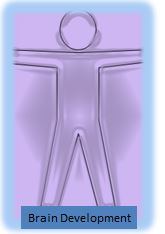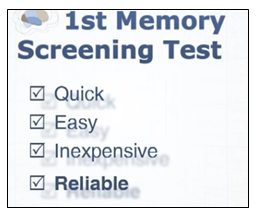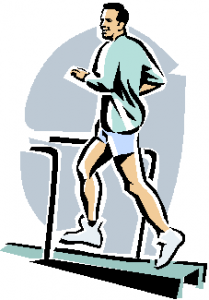Can Mother’s Exercise Boost Baby’s Brain Maturity?
 I regularly get emails from parents asking what they can do to help improve their kid’s brain function and cognitive performance. I offer plenty of tips in the Next Brain blog but am always on the look out for more.
I regularly get emails from parents asking what they can do to help improve their kid’s brain function and cognitive performance. I offer plenty of tips in the Next Brain blog but am always on the look out for more.
For example the New York Times has an interesting article about a research study that suggests as little as one-hour of exercise per week while pregnant can have a pronounced impact on how a new born’s brain processes stimulus.
“their brains were more mature,” Ms. Labonte-LeMoyne said.”
The study cautions that it is not clear if other factors are at play or if the relative advantage will persist as the child develops. The researcher conclude:
“But for now, the lesson is clear. “If a woman can be physically active during her pregnancy, she may give her unborn child an advantage, in terms of brain development,” Ms. Labonte-LeMoyne said. And the commitment required can be slight.”
I am interested to hear about other research studies that examine the impact of exercise (or lack of it) by a mother on her baby’s brain function and cognitive performance.
Categories: Child, Cognitive Development, Parent Tags:
Cognitive Vitality As We Get Older
 You will often hear that staying “mentally active” is important for maintaining a brain health as you age. A variation on the use it or lose it theme. But what exactly does being mentally active mean in this sense? Is reading a book OK and watching an action movie not?
You will often hear that staying “mentally active” is important for maintaining a brain health as you age. A variation on the use it or lose it theme. But what exactly does being mentally active mean in this sense? Is reading a book OK and watching an action movie not?
A new study tackles this question and the findings are interesting. Turns out activities such as – playing a game, listening to classical music or solving cross word puzzles – “probably won’t bring noticeable benefits to an aging mind”. That is an interesting claim as these types are activities are frequently sited as good examples of what should provide benefit.
The key is to engage in mental activities outside your comfort zone that force you to learn new skills. For example, learning photography or quilting. The general point is:
“It seems it is not enough just to get out and do something — it is important to get out and do something that is unfamiliar and mentally challenging, and that provides broad stimulation mentally and socially,…”
Doing mental activities that we have already mastered, while still worthwhile, may not be providing the brain boost and protection we need as we age.
Categories: Cognitive Decline, Cognitive Development, Lifestyle, Memory and Learning, Older Adult Tags:
More Evidence that Chocolate is Good for the Brain
 A recent study demonstrated that two cups of hot cocoa a day for a month improved brain health and thinking skills in the elderly. The study included 60 people who on average were in there 70s. Those participants with impaired blood flow showed an 8.3% percent improvement in blood flow and a 31% improvement in response time on a working memory test.
A recent study demonstrated that two cups of hot cocoa a day for a month improved brain health and thinking skills in the elderly. The study included 60 people who on average were in there 70s. Those participants with impaired blood flow showed an 8.3% percent improvement in blood flow and a 31% improvement in response time on a working memory test.
In more technical terms:
There is a strong correlation between neurovascular coupling and cognitive function, and both can be improved by regular cocoa consumption in individuals with baseline impairments. Better neurovascular coupling is also associated with greater white matter structural integrity.
Neurovascular coupling refers to the link between brain activity and the amount of cerebral blood flow. Better blood flow, better thinking. This is a new finding.
Participants consumed no other chocolate during the test.
Categories: Cognitive Decline, Diet, Memory and Learning, Older Adult Tags:
Free Test for Alzheimer’s Related Memory Loss
 As we age our memory changes. Sometimes it is hard to know if your experiences are natural “senior moments” or early warning signs of serious memory problems such as those related to dementia, mild cognitive impairment or early Alzheimer’s disease. MemTrax was developed to help address this issue. It is a simple visual memory test you can take in 1-4 minutes. Your score is easy to understand and if you take the test on a regular basis, say every month, you can see how it changes over time.
As we age our memory changes. Sometimes it is hard to know if your experiences are natural “senior moments” or early warning signs of serious memory problems such as those related to dementia, mild cognitive impairment or early Alzheimer’s disease. MemTrax was developed to help address this issue. It is a simple visual memory test you can take in 1-4 minutes. Your score is easy to understand and if you take the test on a regular basis, say every month, you can see how it changes over time.
The initial test is free and you can see how it works in this demo. You can take the test on from your computer, iPhone or iPad.
I am interested to hear from readers that use MemTrax or other instruments that screen for neurodegenerative memory decline.
Categories: Cognitive Decline, Memory and Learning, Older Adult, Software Tags:
Improve Problem Solving Under Pressure
 Interesting new research from Carnegie Mellon University demonstrates that chronically stressed individuals get better at problem solving if they take a few minutes to think about what is important to them. This self-affirmation technique can involve something as simple as taking a few minutes to identify an important value (family, art, business, friends. etc.) and writing a couple of sentences on what makes it important.
Interesting new research from Carnegie Mellon University demonstrates that chronically stressed individuals get better at problem solving if they take a few minutes to think about what is important to them. This self-affirmation technique can involve something as simple as taking a few minutes to identify an important value (family, art, business, friends. etc.) and writing a couple of sentences on what makes it important.
Focusing on what is important mitigates the effects of stress on parts of your brain and immediately improves your ability to solve problems. There is some evidence that this works outside the laboratory:
“An emerging set of published studies suggest that a brief self-affirmation activity at the beginning of a school term can boost academic grade-point averages in underperforming kids at the end of the semester.
A simple technique for improving cognitive performance under pressure in yourself and others. I am interested to hear from readers that have built self-affirmation into everyday activities.
Source of image: Pressure Cooker
Categories: College Student, Problem Solving Tags:
$25,000 Brain Health Contest Ends May 5, 2013
 The AARP is sponsoring a sweepstakes designed to promote brain health. If you are 45 years or older you can sign up for free, learn about brain health and play various brain training games to compete. Games include memory match, private eye, split word, countdown and a brain teaser. You earn an entry for each level you complete and restrictions apply. You can also read library articles to earn entries if the games don’t appeal to you.
The AARP is sponsoring a sweepstakes designed to promote brain health. If you are 45 years or older you can sign up for free, learn about brain health and play various brain training games to compete. Games include memory match, private eye, split word, countdown and a brain teaser. You earn an entry for each level you complete and restrictions apply. You can also read library articles to earn entries if the games don’t appeal to you.
I hope they publish some data on the results once the contest is over. It will be interesting to see if this approach has a material impact on brain health.
I am interested to hear from readers that know about other brain health contests or sweepstakes.
Categories: Older Adult, Software, Training Tags: games
20 Hours of Mobile Gaming Enhances Cognition
 A new study found that playing video games for an hour a day, five days per week, for a month produced significant improvements in a player’s ability to track multiple objects and complete visual search tasks. That is just 20 hours of using games that are a lot of fun.
A new study found that playing video games for an hour a day, five days per week, for a month produced significant improvements in a player’s ability to track multiple objects and complete visual search tasks. That is just 20 hours of using games that are a lot of fun.
Researchers looked at the effects of action games and non-action games. The games in the study included: Modern Combat Sandstorms. The Sims3, Bejeweled 2, Memory Matrix and Hidden Expedition Everest.
There are two important aspects of this study for readers of the Next Brain Blog:
- Gaming improves specific cognitive skills on small screens and works in the wild. Participants used their iPhones and did the training outside the laboratory in a real world setting.
- Non-action games, for example Sims3 and Memory Matrix showed some evidence of improving cognitive skills. While this is a preliminary result, it is important for those that don’t like violent games.
I am interested to hear how readers are using their mobile phones to play games or use other apps to improve brain function and cognitive performance.
Categories: College Student, Memory and Learning, Perception Tags: games
The Impact of Physical Activity on the Brain
 Here in the Next Brain Blog we have reviewed many studies that demonstrate the impact physical activity has on brain function and cognitive performance. For example:
Here in the Next Brain Blog we have reviewed many studies that demonstrate the impact physical activity has on brain function and cognitive performance. For example:
Instant Memory Boost from Six Minutes of Exercise
Tai Chi Boosts Brain Volume and Performance
Exercise Once Weekly Helps Avoid Mental Decline
Short Weekly Walks Improve Intelligence
to list a few. And if that is not enough to convince you to include physical activity as part of your brain training efforts, a review of multiple research studies presented at a recent meeting of the American Association for the Advancement of Science found:
“Dozens of studies now show that aerobic exercise can increase the size of critical brain structures and improve cognition in children and older adults.”
I am interested to hear from readers that use physical activity to improve brain function and cognitive performance. What activities do you do? How frequent do you do them?
Categories: Child, Cognitive Decline, Lifestyle, Memory and Learning, Older Adult Tags: exercise
Facebook Improves Mental Updating by 25%
An interesting preliminary study from the psychology department at the University of Arizona found that seniors trained to use Facebook showed measurable improvement in their cognitive abilities. More specifically:
“In the follow-ups, those who had learned to use Facebook performed about 25 percent better than they did at the start of the study on tasks designed to measure their mental updating abilities”
Mental updating is the ability to add and delete contents in your working memory. The study included a small group of seniors ages 68-91 with little or no prior Facebook experience. Participants friended only those in their group and made at least one short post daily.
Researchers believe that the constant information updating on Facebook and its relatively complex interface are responsible for the improvement. But more research is needed.
I am interested to hear from readers that use Facebook as a means to boost cognitive performance or maintain brain health.
Categories: Memory and Learning, Mental Focus, Older Adult, Software, Training Tags:
Early Musical Training Boosts Motor Skills
 An interesting finding for parents looking to accelerated their kid’s brain development:
An interesting finding for parents looking to accelerated their kid’s brain development:
“A study published last month in the Journal of Neuroscience suggests that musical training before the age of seven has a significant effect on the development of the brain, showing that those who began early had stronger connections between motor regions – the parts of the brain that help you plan and carry out movements.”
The study found that the effect is strongest between the ages of 6-8 and that there appears to be no effect in adults.
Interested to hear from readers that are using music as part of their Next Brain development efforts.
Categories: Child, Cognitive Development, Music and Audio, Training Tags:

